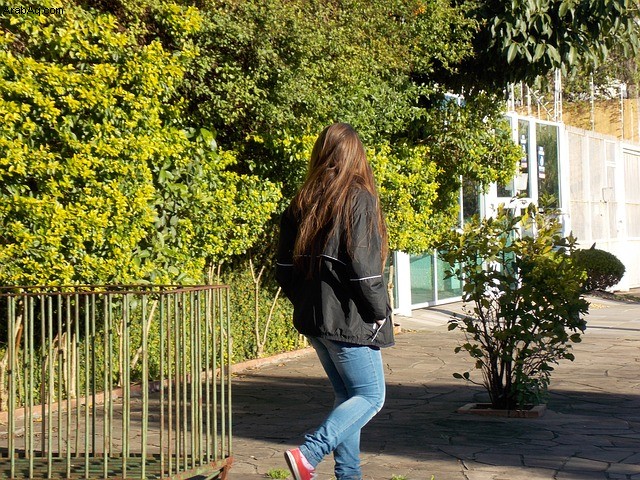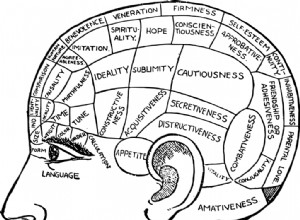
جعل ابنك المراهق يتحدث ، حسنًا ، يمكن أن يكون أي شيء صعبًا. ولكن إذا كنت قلقًا من احتمال تجربتهم للمخدرات ، فهذه محادثة تستحق أن تجريها.
حوالي نصف المراهقين اليوم يسيئون استخدام المخدرات مرة واحدة على الأقل في حياتهم ، مع تصنيف الكحول والماريجوانا ومنتجات التدخين الإلكتروني - الفيبينج - vaping من بين أفضل المواد التي يتعاطى المراهقون تعاطيها. يحتاج أكثر من 10 ملايين مراهق في جميع أنحاء البلاد إلى علاج من تعاطي المخدرات ، لكن 1 فقط من كل 10 يتلقون مساعدة متخصصة [1].
حتى لو لم يكن طفلك قد جرب المخدرات أو الكحول حتى الآن ، فمن المحتمل أنه يعرف شخصًا قام بذلك. في الواقع ، يعرف 86٪ من المراهقين شخصًا يدخن أو يشرب أو يتعاطى المخدرات أثناء وجوده في المدرسة [1].
ما سبب أهمية محادثات استخدام المواد المخدرة
يكافح المراهقون للسيطرة على عواطفهم ولا يظهرون دائمًا أفضل الأحكام لأن أدمغتهم لا تزال تتطور. تتطور قشرة الفص الجبهي ، أو صوت العقل في الدماغ ، أخيرًا ، وهذا هو السبب في أن المراهقين أكثر عرضة للمخاطرة والبحث عن الإثارة قصيرة المدى [2].
المراهقون أكثر عرضة سبع مرات للإصابة بحادث متعلق بالكحول عندما يبدأون في القيادة إذا بدأوا الشرب في سن أصغر [1]. والمراهقون أكثر عرضة لممارسة الجنس دون وقاية وهم تحت تأثير المخدرات أو الكحول.
يتعرض المراهقون أيضًا لخطر أكبر للمعاناة من أضرار قصيرة أو طويلة الأجل من تعاطي المخدرات. يمكن أن يؤثر تعاطي المخدرات أو الكحول في مرحلة المراهقة على نمو دماغ طفلك ويمكن أن يساهم أيضًا في حدوث مشكلات صحية في وقت لاحق من الحياة ، بما في ذلك أمراض القلب وارتفاع ضغط الدم واضطرابات النوم. والمراهقون أكثر عرضة للإصابة باضطراب تعاطي المخدرات إذا بدأوا في تعاطي المخدرات أو الكحول في مثل هذه السن المبكرة [3].
قالت الدكتورة نورا فولكو ، مديرة المعهد الوطني لتعاطي المخدرات ، لصحيفة نيويورك تايمز:"إنها عملية تعلم عندما تصبح مدمنًا". "إنها نوع من الذاكرة يتم توثيقها في عقلك. يحدث ذلك بشكل أسرع في دماغ المراهق "[4].
هذا هو السبب في أنه من المهم للغاية أن تكون صوت العقل لطفلك. يمكنك أن تلعب دورًا حاسمًا في مساعدتهم على فهم مخاطر تعاطي المخدرات وتجاوز ضغط الأقران.
كيفية إجراء محادثة صحية حول استخدام المواد المخدرة
بصفتك أحد الوالدين ، فأنت تريد أن يمتنع ابنك المراهق عن تعاطي المخدرات والكحول. لكن كيف تتحدث مع طفلك عن تعاطي المخدرات دون إبعاده؟
على الرغم من أن المراهقين قد بدأوا في تكوين هوياتهم الخاصة واستقلالهم ، إلا أن والديهم لا يزالون في كثير من الأحيان التأثير الأكبر في حياتهم. Starting a dialogue about substance use might seem daunting, but it is possible to have a healthy conversation. These tips can help you get the ball rolling:
1. Choose a Time Wisely
Some teens do not react positively when adults bring up serious subjects without warning, and they may become defensive or shut down emotionally. If this is your child, let them know ahead of time that you would like to have this conversation, and be clear about your intentions so that there’s no miscommunication.
 The Child Mind Institute suggests saying something like, “Tomorrow night, let’s have a talk about drinking and drugs. You’re not in trouble. I just want to talk about where we stand and hear any concerns you might be having” [5].
The Child Mind Institute suggests saying something like, “Tomorrow night, let’s have a talk about drinking and drugs. You’re not in trouble. I just want to talk about where we stand and hear any concerns you might be having” [5].
You can also look for quiet moments to talk when you know that you won’t be interrupted, such as after dinner, before bed, or on the drive to or from school. Taking a walk or going for a drive is also a less personal approach that doesn’t force your child to make eye contact during such a difficult conversation.
2. Make Your Rules Clear
Research has shown that adolescents are often safer when they have parents who set clear boundaries [5]. But it is crucial to make sure that you and your child are on the same page about what those boundaries are.
When you say, “Be smart,” you might think that you are telling your child not to drink, while your child might think that you mean to not drink until they blackout. Harvard University recommends using specific language such as, “You can go out with your friends as long as you can assure me that you will not use marijuana” [6].
3. Explain Why
Adolescents are starting to form their own opinions, which do not always align with the way their parents think. Maintaining open communication with your child is essential, especially when it comes to their health and safety.
By explaining why you want your child to abstain from substance use, you create an environment that welcomes open dialogue. Stick to the facts, and speak to your child with respect to model the behavior you expect from them.
4. Listen to Your Child
This is a conversation, not a lecture, so encourage your child to talk to you about their knowledge and experiences and make sure to listen to their viewpoint.
If you are not sure where to start, Harvard University suggests asking questions like, “Tell me, what do you know about marijuana?” Remember to not judge your child’s responses. Instead, ask them to reflect on their knowledge. You might ask, “So, you’ve heard that marijuana is pretty safe because it is natural. Do you think that is correct?” [6]
If your child has already used drugs or alcohol, get curious instead of angry. They may have tried substances to relieve stress, cope with distressing emotions, or fit in with their friends. Understanding why your child started using drugs or alcohol will show what aspects of their life need intervention.
There’s no perfect formula for how to talk to your teen about substance use. But knowing that they can come to you to talk about drugs and alcohol is a great first step.






